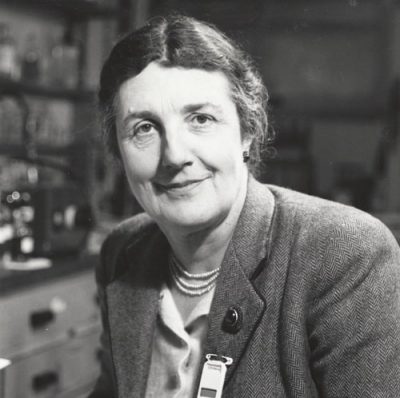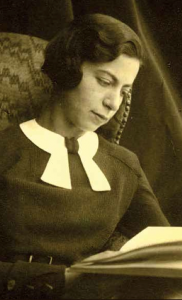This year’s Holocaust Memorial Day marks 80 years since the liberation of Auschwitz-Birkenau. Today we remember the six million Jews killed in the Holocaust, all victims of the Nazis, and the victims of subsequent genocides. Here, our Second Year Historian Lucy Pollock shares a reflection on what this day means to her, and on Somerville’s history as a college of sanctuary.
Today, Monday 27th January, marks 80 years since the liberation of Auschwitz-Birkenau, the largest Nazi concentration camp. Auschwitz-Birkenau was also the camp that the entirety of my extended family were held at – my great-grandmother, Eva, was one of five people from a family of hundreds to escape Germany. Those hundreds of aunts, uncles, cousins, grandparents were all killed at Auschwitz-Birkenau. Hundreds and hundreds of people with my mother’s last name, Horowitz, were all murdered. The only thing that remains are their names in the Nazi records.
Holocaust Memorial Day is always a complex time for me. It is a day of tragedy, but also a day of hope. I focus on how many people were saved, how many escaped. I focus on the fact that a Jewish woman studying at university was a reality my ancestors could not have conceived of.

Janet Vaughan, Principal (1945-1967)
I am unbelievably proud to be at Somerville. What makes me prouder is our legacy as a college. During World War Two, Somerville was influential in relief efforts and fundraising. We also have three principals who I admire greatly, and whose stories I would like to share.
Dame Janet Vaughan (Principal 1945-1967), was part of the first group of citizen scientists to enter Bergen-Belsen. She worked on diets to treat patients who were close to death due to starvation, saving many who had resigned themselves to death. Vaughan witnessed the thousands of unburied dead and helped treat 60,000 starving and mortally ill people. Many had shrunken intestines, and feeding them proved a challenge. Vaughan persevered, and was instrumental in helping to find the right diet to save the starving former prisoners. Dame Vaughan was incredible in many, many regards – the kind of scientist that many can only aspire to be – but I think it were these efforts which distinguish her the most, and show her fundamental goodness.
I’d also like to discuss Margery Fry (Principal 1926-1931) and Helen Darbishire (Principal 1931-1945). Margery Fry was one of two women signatories to the Council for At-Risk Academics (CARA), established in 1933. Academics were particularly persecuted in Nazi Germany, and were some of the first to lose their jobs after Hitler became Chancellor in 1933. Between 1933 and 1939, CARA raised £100,000 (equivalent to £4 million today) from donors and universities and used it to support academics and their families, and bring them to safety. CARA saved around 2000 people, helping them build new lives. Helen Darbishire continued her predecessor’s efforts, and was particularly active in Oxford’s refugee projects, especially in the rescue of female academics.

Dr Lotte Labowsky
Among many academics was Dr Lotte Labowsky, a Jewish German Classicist who was welcomed to Somerville as a refugee. She was born in Hamburg, but it was at Somerville that she found safety and grew as an academic. It was once she was at Somerville that she was able to save her parents, who joined her in Oxford shortly before war broke out. Helen Darbishire was also important in keeping Lotte from internment, and rescuing her father, Norbert, from internment by the Home Office, who imprisoned many Jewish refugees (including some of my own ancestors) under suspicion of them being German spies. Helen Darbishire protected Lotte and her family, and saved their lives.
Somerville set up refugee scholarships in 2021, becoming one of the UK’s first Colleges of Sanctuary, but its legacy as a place of sanctuary is long-standing, and makes me unbelievably proud to be a student at Somerville. This Holocaust Memorial Day, I have been reflecting on the overwhelming support shown by Oxford, and by Somerville. As Holocaust denial and antisemitism has increased, I take comfort in knowing that Somerville has always been a place of safety.